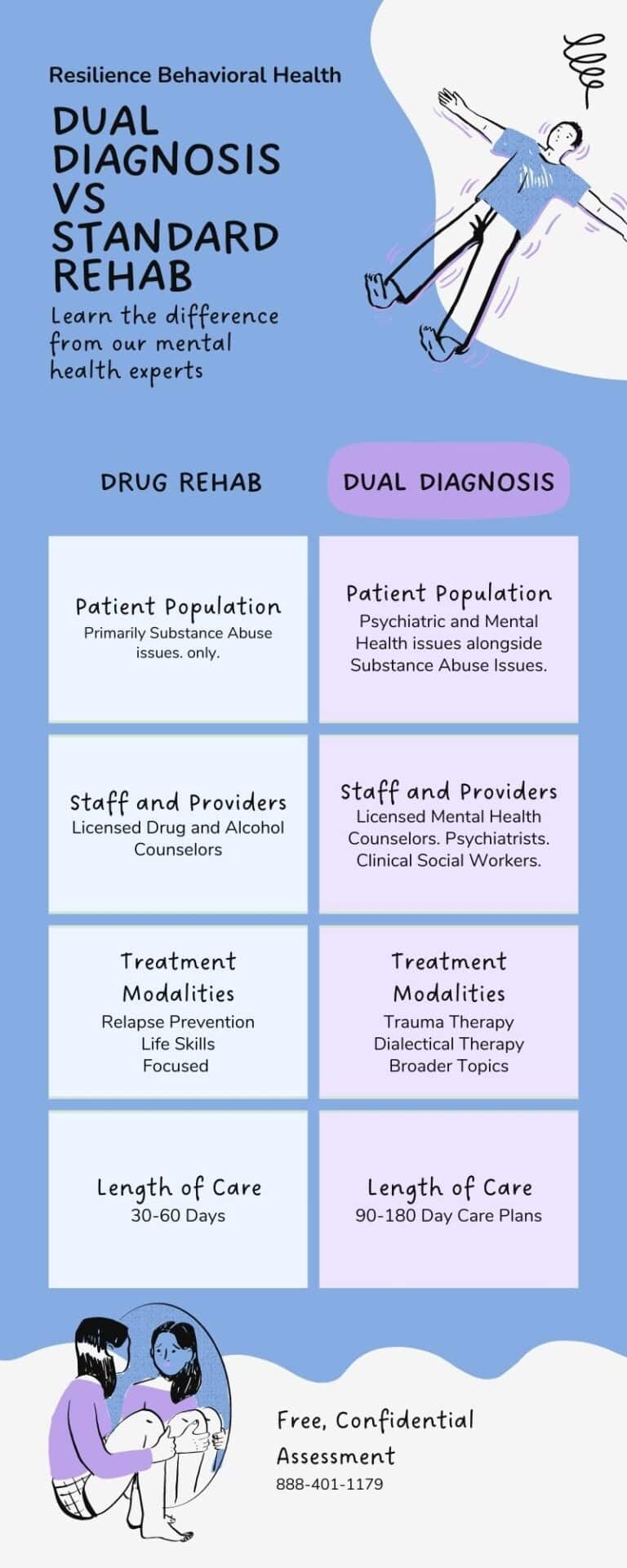What is Dual Diagnosis Rehab?
A dual diagnosis rehab is a specialized treatment program that addresses co-occurring mental health and substance use disorders, following the ASAM criteria. (Citation: ASAM Criteria) It provides integrated care to individuals struggling with both conditions simultaneously.
This rehab program utilizes evidence-based practices, including therapy, medication management, and holistic approaches, to effectively treat the complex needs of individuals with dual diagnoses. By following the ASAM criteria, it ensures a comprehensive assessment and placement process for patients, leading to personalized and targeted treatment plans. (Citation: ASAM Criteria)
The goal of dual diagnosis rehab is to help individuals achieve lasting recovery by addressing both mental health and substance use challenges. With a multidisciplinary team of professionals, including therapists, psychiatrists, and addiction specialists, these programs provide a supportive environment and a range of therapeutic interventions to address the unique needs of each individual. (Citation: ASAM Criteria)
In summary, a dual diagnosis rehab program, guided by the ASAM criteria, offers integrated treatment for individuals with co-occurring mental health and substance use disorders. It focuses on comprehensive care, evidence-based practices, and personalized treatment plans to support individuals on their journey to recovery.

Symptoms of Mental Health and Co-Occurring Addiction
Only a mental health professional can diagnose a mental health or substance use disorder. However, knowing the common symptoms of dual diagnosis may help individuals recognize when they need assistance.
Dual diagnosis symptoms are similar to mental health and substance use disorders but occur in the same person. Those symptoms include:
- Sudden behavior changes
- Difficulty managing daily tasks
- Retreating from relationships with family and friends
- Poor attendance or performance at work or school
- Changes in personality or mood
- Neglecting health and hygiene
- Engaging in risky behaviors
- Developing high tolerance to a substance
- Feeling the need to use the substance to function normally
- Losing control over substance use
- Using substances under unsafe conditions
- Experiencing withdrawal symptoms
Benefits of Dual Diagnosis Rehab
When only one disorder is treated, the treatment is less likely to be as effective as it would be in a person without a dual diagnosis. Comprehensive treatment that addresses both issues is essential to facilitate the best outcomes for patients with co-occurring disorders.
A dual diagnosis is likely to be a complex case, requiring a more intensive treatment program than a mental health disorder on its own. The benefits of dual diagnosis treatment are that the person can:
- Receive the necessary treatment to stop using drugs or alcohol
- Receive therapy to help them cope with their mental health disorder
- Work with a therapist to understand how their co-occurring disorders are connected
- Address the roots of addiction and the causes of their mental health disorder
- Learn coping mechanisms for mental health conditions
- Identify and avoid triggers associated with relapse
- Build a solid relapse prevention plan
- Increase their motivation for engaging in treatment
Is Dual Diagnosis Rehab right for me?
Determining if dual diagnosis treatment is right for you requires a comprehensive evaluation by qualified professionals. To find out if you would benefit from dual diagnosis treatment, consider the following steps. First, consult with a healthcare provider, such as a psychiatrist or addiction specialist, who can assess your symptoms, history, and treatment needs. They will be able to determine if you have co-occurring mental health and substance use disorders that require integrated treatment.
How to find Dual Diagnosis Rehab Massachusetts?
Dual diagnosis treatment centers can help individuals struggling with co-occurring mental health and substance use disorders. To find a dual diagnosis treatment facility, you can:
- Call the Substance Abuse and Mental Health Services Administration’s helpline at 1-800-662-HELP (4357)
- Use a behavioral health treatment locator tool
- Ask your doctor for a rehab center recommendation
- Ask your therapist for a recommendation for a dual diagnosis center
- Search recovery resources by zip code
- Call for a confidential and private consultation to find placement into an appropriate Dual Diagnosis Rehab at (888)-401-1179

